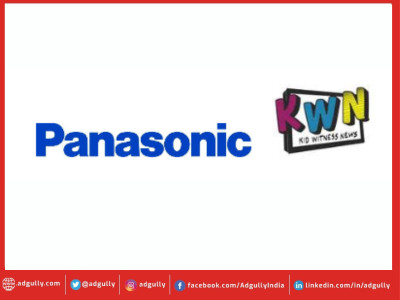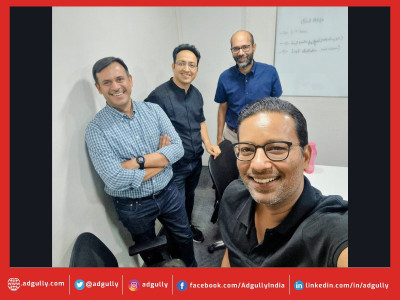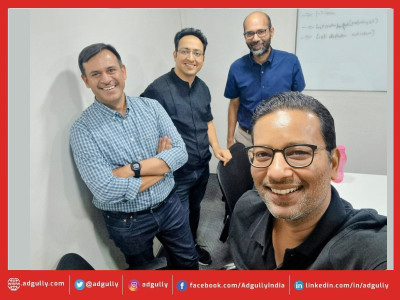The rise of Reputation Economy: Optimising trust & transparency in the digital world
“Your brand isn’t what you say it is, it’s what Google says it is.” – Chris Anderson, Former Editor of Wired Magazine. In today’s digital age, maintaining a positive reputation is crucial for businesses across all industries. From managing online reviews to navigating social media controversies, reputation management has become a cornerstone of digital success.
As noted by Nico Goghavala, Owner, The Quarter Restaurant, “Online reviews serve as the modern-day word of mouth. Positive reviews act as digital accolades. Conversely, negative reviews can ripple through cyberspace, casting a shadow on an establishment’s reputation and potentially affecting its bottom line”
Adgully reached out to some leading industry experts and delved into the strategies, challenges, and innovations driving the field of reputation management in the ever-evolving digital landscape.
Sandeepa Santiago, Innovation Architect & Brand Strategist, CommsCredible, remarked, “We live in a world where it is imperative for businesses to build and retain a positive perception online. Each online engagement leaves a trail behind and this determines how well we can be trusted, ultimately leading to our success or failure. Keeping up with the ever evolving digital landscape, understanding the preference and expectations of stakeholders and regularly engaging with them as per your strength and expertise helps build brand reputation and create value proposition. It is equally important for brands to regularly review their content and fine tune it. Any issue, if left unaddressed for a long time, can lead to loss of consumer trust.”
According to Xavier Prabhu, Founder & MD, PRHUB, “Reputation economy is hit in the digital age due to the focus on everything short term, transactional, and the pressure to make it of interest to the audience. The purveyors of digital are typically not trained in the rigor of reputational processes. Nor are they looking at consistent narratives which are integral to reputation. What all of this together does is to change the whole reputation paradigm which necessarily may not be the right or best way to head.”
Anand Vaidya, General Manager - Marketing & Corporate Communications, WebEngage, noted, “In the digital age, the reputation economy is constructed through online interactions, feedback, and visibility. User-generated content, such as reviews and ratings, shapes perceptions, while social proof through likes and followers influences credibility. Personal branding efforts enhance individual and business reputations, strategically curated for authenticity and resonance. Algorithmic influence further amplifies visibility, with high engagement driving increased influence. Overall, the reputation economy in the digital age relies on transparency, trust, and active management of online presence to thrive in the interconnected digital landscape.”
Key challenges faced by businesses in managing their reputation in today’s digital landscape
Speaking on some of the key challenges faced, Vaidya from WebEngage, said, “Businesses face numerous challenges in managing their reputation in today’s digital landscape. These include navigating the rapid spread of information, responding to viral content and online crises in real-time, and addressing the proliferation of user-generated content across various platforms. Maintaining consistency across multiple channels while adapting to ever-changing algorithms poses a challenge. Additionally, the anonymity of online interactions can lead to misinformation and malicious attacks. Balancing transparency with privacy concerns is crucial. Lastly, ensuring authenticity and trustworthiness amidst a sea of content is an ongoing struggle. Overall, businesses must navigate these challenges to safeguard and enhance their reputation in the digital age.”
“Today’s consumers have shorter attention spans, making it challenging for businesses to retain their attention and loyalty, ensure repeatability and maintain continuous positive engagement,” said CommsCredible’s Santiago, adding that consumers do not buy a brand, they buy because they perceive that the brand satisfies their needs the best. It only takes one negative press incident to shift consumer preference elsewhere. Monitoring consumer perceptions and promptly addressing feedback, particularly negative ones, across multiple platforms can post a challenge for brands.
Best practices for businesses to effectively build and maintain their reputation online
PRHUB’s Xavier Prabhu shared, “It is balancing the need to be instant, play to the audience and be there 24x7, while ensuring consistent narratives and other elements of the reputational process are adhered to.”
He advised, “Thinking holistically is a good and best practice to start with. Don’t think of any messaging or narrative standalone. See how it will likely play across traditional online and digital platforms. Second would be visual storytelling that is contextual. Third would be usage of technology in the form of tools and last is think long term and qualitative. Don’t chase numbers and virality for the sake of it.”
WebEnage’s Vaidya listed the following best practices that businesses can follow to build and maintain their reputation online:
- Transparency: Be honest and genuine in communication.
- Consistent Branding: Maintain a cohesive identity across platforms.
- Engagement: Respond promptly and professionally to feedback.
- Quality Content: Share valuable, relevant content.
- Monitor and Manage: Keep track of online mentions and reviews.
- Build Trust: Cultivate relationships with customers and influencers.
- Adaptability: Stay updated and adapt to changes in the digital landscape.


















Share
Facebook
YouTube
Tweet
Twitter
LinkedIn